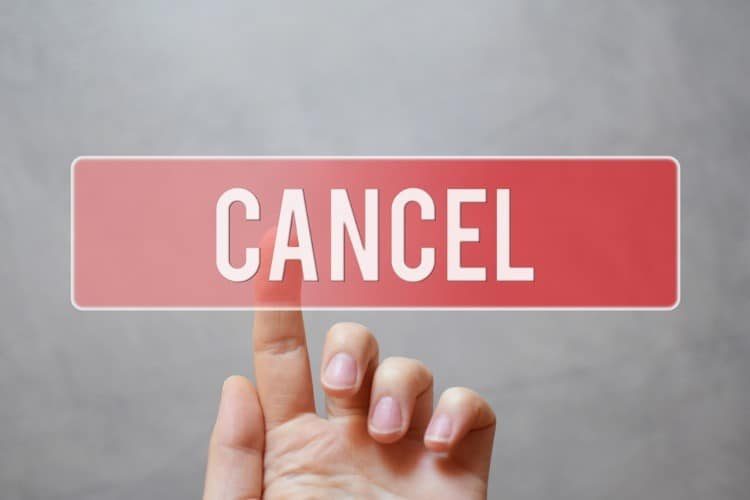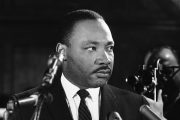
A majority of Americans say they view “cancel culture” as a threat to their freedom, according to a new Harvard CAPS-Harris Poll survey conducted for The Hill and released March 29
According to the survey, 64 percent of respondents said there is “a growing cancel culture” that is a threat to their freedom, while 36 percent said they did not view it as a threat to their freedom.
Additionally, the poll found that 36 percent of Americans said cancel culture is a “big problem,” while 32 percent called it a “moderate problem.” Another 20 percent said it was a “small problem” and 13 percent said it is “not a problem.”
There is no single accepted definition of the term “cancel culture,” but it is generally used in reference to unaccountable groups successfully applying pressure to punish someone for perceived wrong opinions and words or actions deemed offensive. Victims of cancel culture often end up losing their jobs and/or having their reputations destroyed, and are sometimes harassed, threatened, and even physically harmed.
One of the most distinctive characteristics of cancel culture is the fact that its adherents are nearly always progressive liberals. The victims, i.e., those being “canceled,” are typically either conservatives or libertarians, or just people driven by common sense, knowledge of history, and statistics. Very rarely is it the other way around. While there have been some left-wing professors who have come under fire for their speech, those instances have generally involved exceptionally violent imagery. A professor in Iowa, for instance, who openly declared his support for the violent leftist group Antifa, has been forced to resign from his position at a community college after posting comments online stating that he wants to “kill all” Christians and “clock” President Trump with a baseball bat. By contrast, a USC professor was suspended merely for using (appropriately in the context of the class) a Chinese word that happened to sound like the “n-word.” People have been fired or otherwise punished — shot, even — for saying “All Lives Matter.” By contrast, a professor was promoted despite tweeting that “White Lives Don’t Matter (as White lives)” and “Abolish whiteness.”
Cancel culture certainly has no reservations against operating with double standards. We see conservative media such as Zero Hedge and the Federalist being pressured by Google to censor their content and being barred from Google’s ad platform if they don’t. However, this never happens to mainstream-media outlets that promote acts of violence committed by “woke” leftist forces, no matter how ugly they are. Conservative platform Parler, which refused to nod to the Big Tech “standards” of censorship, got booted from Apple, Google Play, and Amazon Web Services without any notice. Twitter and Facebook canceled the President of the United States while keeping Chinese communists and Islamic fundamentalists and complying with censorship requests from autocratic governments such as Russia and Turkey. We’re seeing corporations changing logos of their products dubbed racist on Twitter. Cancel culture claims children’s books, cartoons, beauty bloggers, athletes, movie stars, regular parents, and numerous others. The list of the victims of the modern-day lynchers is exhausting.
Polling supports the idea that cancel culture is predominantly used against conservatives by those on the far left. The Cato Institute, together with the YouGov polling organization, finds that a disproportionate share of conservatives feel afraid to express their views, while “strong liberals” are relatively unrestrained. Majorities of Democrats (52 percent), Independents (59 percent) and Republicans (77 percent) all agree they have political opinions they are afraid to share. Strong liberals stand out, however, as the only political group who feel they can express themselves: 58 percent of staunch liberals feel they can say what they believe.
Powerful voices on the institutional left claim that there is no such thing as cancel culture. They insist that people with troubling worldviews must be held accountable when legal punishment for their wrongthink is unachievable. Hollywood Insider explains: “Whether you’re an A-list celebrity or an average citizen, if you do something illegal or immoral, you should be held accountable for your actions. Our most prominent system of accountability is our legal system, and when it works correctly, it’s an excellent way to deliver consequence to those that commit wrongdoings. However, for celebrities, it’s much harder for them to face proportionate consequences for their crime.” Note how people should be held accountable for doing something “immoral.” Who decides what’s immoral? Surely, a “woke” mob that self declares to hold a superior moral authority, according to the Left. Likewise, The Hill contributors believe that cancel culture is not a threat to free speech, but a manifestation of it, and argue that it is an evolving form of democratic discourse where individuals use their free-speech rights to form masses. These masses exert pressure on people and institutions. If this is the case, then perhaps a better term for it would be “accountability culture.”
Bolstering cancel culture is the fact that anything and everything can be interpreted as offensive owing to the inherent subjectivity of human nature, which is easily fired up by the modern “identity politics” that focuses on grievances, real or imagined. There is, of course, a glaring contradiction in such identity politics: Identity is said to be of immense importance for suffering minorities, but there is no limit to how much the identity of the majority can be attacked and diminished. Free speech is welcome as long as it fits the “woke” narrative of identity politics; if not, the speaker is “canceled.” People are assumed to enjoy equal rights, but every person must tick certain “identity” boxes that somehow imply more or less a degree of “privilege” or “victimhood.” Perhaps conservatives who deny the presence of our modern-day “cancel culture” are too benevolent to consider the possibility that identity groups can be weaponized for sinister political goals.
The CAPS-Harris Poll survey shows that many Americans are waking up to how bad it really is.




